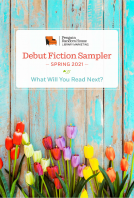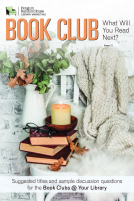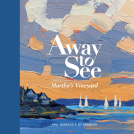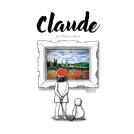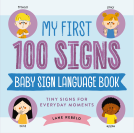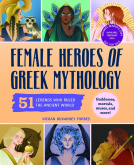
Avidly Reads Opera
by Alison Kinney
This title was previously available on NetGalley and is now archived.
Send NetGalley books directly to your Kindle or Kindle app
1
To read on a Kindle or Kindle app, please add kindle@netgalley.com as an approved email address to receive files in your Amazon account. Click here for step-by-step instructions.
2
Also find your Kindle email address within your Amazon account, and enter it here.
Pub Date Oct 12 2021 | Archive Date Dec 09 2021
Talking about this book? Use #AvidlyReadsOpera #NetGalley. More hashtag tips!
Description
“Opera is community, comfort, art, voice, breath, life. It’s hope.”
All art exists to make life more bearable. For Alison Kinney, it was the wild, fantastical world of opera that transformed her listening and her life. Whether we’re listening for the first time or revisiting the arias that first stole our hearts, Avidly Reads Opera welcomes readers and listeners to a community full of friendship, passion, critique—and, always, beautiful music.
In times of delirious, madcap fun and political turmoil, opera fans have expressed their passion by dispatching records into the cosmos, building fairy-tale castles, and singing together through the arduous work of social activism. Avidly Reads Opera is a love letter to the music and those who love it, complete with playlists, a crowdsourced tip sheet from ultra-fans to newbies, and stories of the turbulent, genre-busting, and often hilarious history of opera and its audiences.
Across five acts—and the requisite intermission—Alison Kinney takes us everywhere opera’s rich melodies are heard, from the cozy bedrooms of listeners at home, to exclusive music festivals, to protests, and even prisons.
Part of the Avidly Reads series, this slim book gives us a new way of looking at culture. With the singular blend of personal reflection and cultural criticism featured in the series, Avidly Reads Opera is an homage to the marvelous, sensational world of opera for the casual viewer.
Available Editions
| EDITION | Other Format |
| ISBN | 9781479811731 |
| PRICE | $17.00 (USD) |
| PAGES | 160 |
Links
Average rating from 7 members
Featured Reviews
Over the last few years I have taken a number of music history classes. One of them touched on opera but that was just a brief introduction. So, I was very interested in reading this title. It did not disappoint.
The author is an unabashed fan of opera. She draws the reader in immediately with an account of her reaction to a death in one of the first operas that she saw. Ms. Kinney then tells readers that this is not a spoiler for her book as people usually die in them.
The author relates her experience in viewing an opera production at Attica State Prison. This clearly makes the point that the world of opera is not only for the elite.
Ms. Kinney is an unabashed fan who has learned a lot about what might be her favorite subject. She engagingly introduces readers to her experiences, knowledge and enthusiasm for the genre.
I highly recommend this one for both novice and seasoned people who want to engage with this art form.
Many thanks to NetGalley and the publisher for this title. All opinions are my own.
A book about the experience of and love for opera. Well-received! It was a joy to be led through prisons, deep space, Bavarian castles, the Supreme Court, and the heights and depths of opera fandom by such a passionate and eager guide. As a music professor, I expected to cover a lot of old ground, but Kinney deftly wove outside research and personal experience together to create a fresh love letter to an old art form.
The questions the book tries to answer, “why and what is opera,” are as diverse as opera fans themselves. Kinney invites the reader into the mind of opera lovers everywhere, her irreverent tone making sections of the book feel as much like a bar-side diatribe as a thoroughly researched introduction to a centuries-old genre. But that’s what opera does: the duality of opera - simultaneously elitist/academic and populist/diverse - is a major theme of the work. Opera is both a tool of the oppressor and the oppressed. Buffa and seria coexist. It contains the courtly and the corporate, the elitist and the populist, a mirror of reality and an escape from the same.
These contradictions are most evident in opera’s most polarizing figure, Richard Wagner, a subject that yielded the richest sections of the book, the Interlude and Act 5. What do we do with a rancorous anti-Semite who wrote music transcendent enough to inspire Ludwig II’s castle-building obsession? Kinney sums Wagner up thus: “a genius and a jackass in equal measure.” Apt. “Opera,” she says, “has facilitated terror and violence, daring us to quit it. It’s also inspired healing, hope, empathy, outrage, and dissent.” This is antinomy. These viewpoints are irreconcilable but are both true.
The Wagnerian sections were the most effective for me because they were largely free of the rumination of previous chapters, Kinney explaining by example instead of lecture. This may be a personal preference, but the rest of the book could have benefitted from more illustrations and fewer explanations. I read a few too many declarations about what “art” is or what the “best” opera audiences are like. I was only on page ten when I found a single paragraph that transitioned from “what is opera” to a list of grievances about contemporary opera companies to some vague hopes for opera’s future. The author’s perspective was welcome, just a bit heavy-handed.
Toward the end of the book, Kinney recounts Philip Glass reflecting on his audience, questioning whether opera mattered if concertgoers already agree with you. I had a similar question about this book: who is the audience? Opera lovers? The opera-unchurched? Liberal millennials in 2021? Kinney states clearly that she is “writing to welcome new fans.” Despite her zeal, this book may be a difficult entry point for those without some experience with opera literature and practice. I suspect her purpose may be broader than she lets on, though. Opera love involves inclusion, community, and connection. This book is a testament to each of those things, for old and new audiences alike. So while I could have done with fewer hot takes, this is a book about opera, and opera favors the bold. In the end, this book is a respectable effort toward demystifying opera, inviting long-time fans to a new appreciation and cautious inductees to a seat in the box.
Readers who liked this book also liked:
We Are Bookish
General Fiction (Adult), Romance, Women's Fiction
JUNO
Arts & Photography, Comics, Graphic Novels, Manga, Travel
We Are Bookish
General Fiction (Adult), Mystery & Thrillers
Lane Rebelo
Children's Nonfiction, Parenting, Families, Relationships

